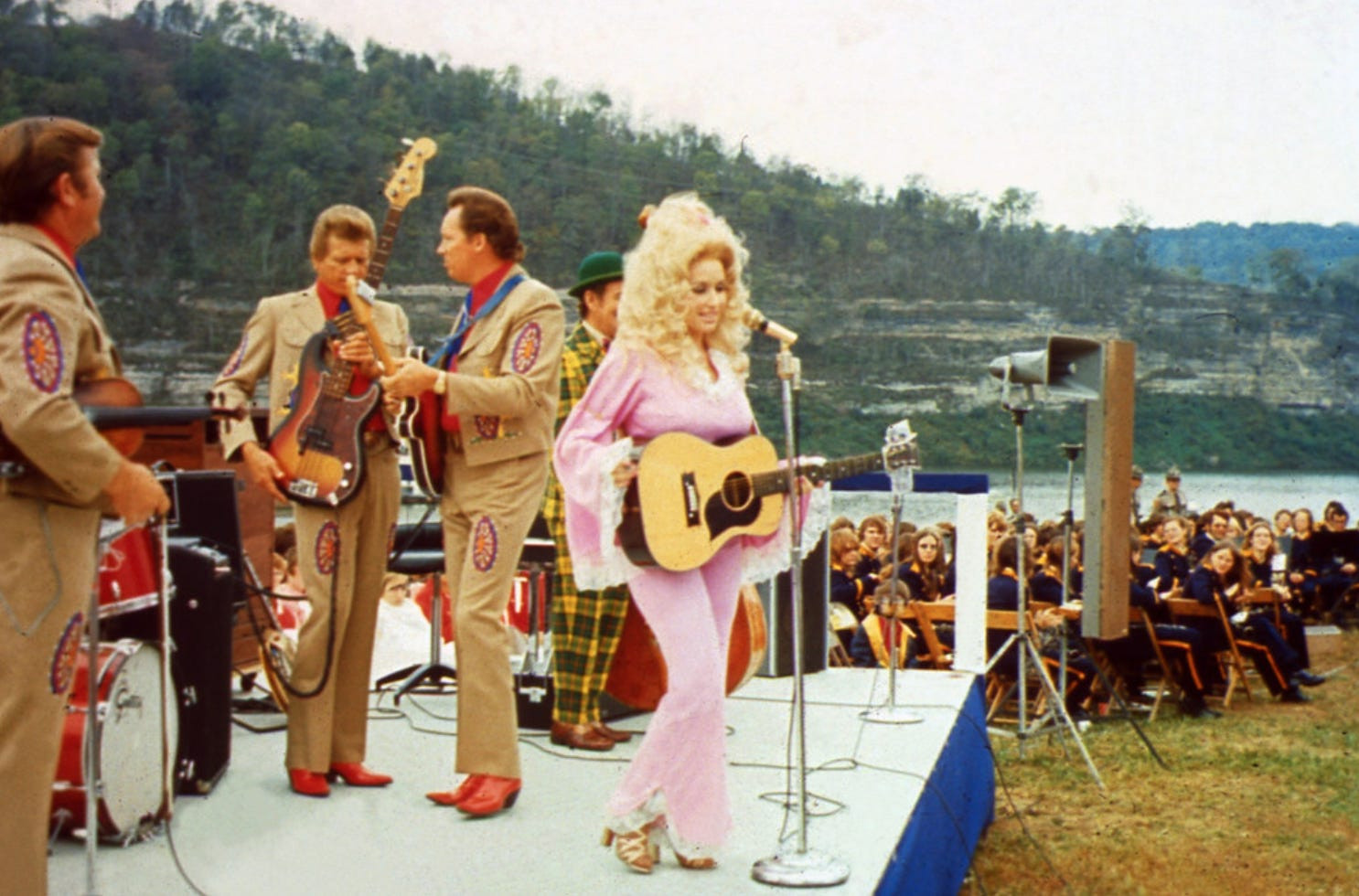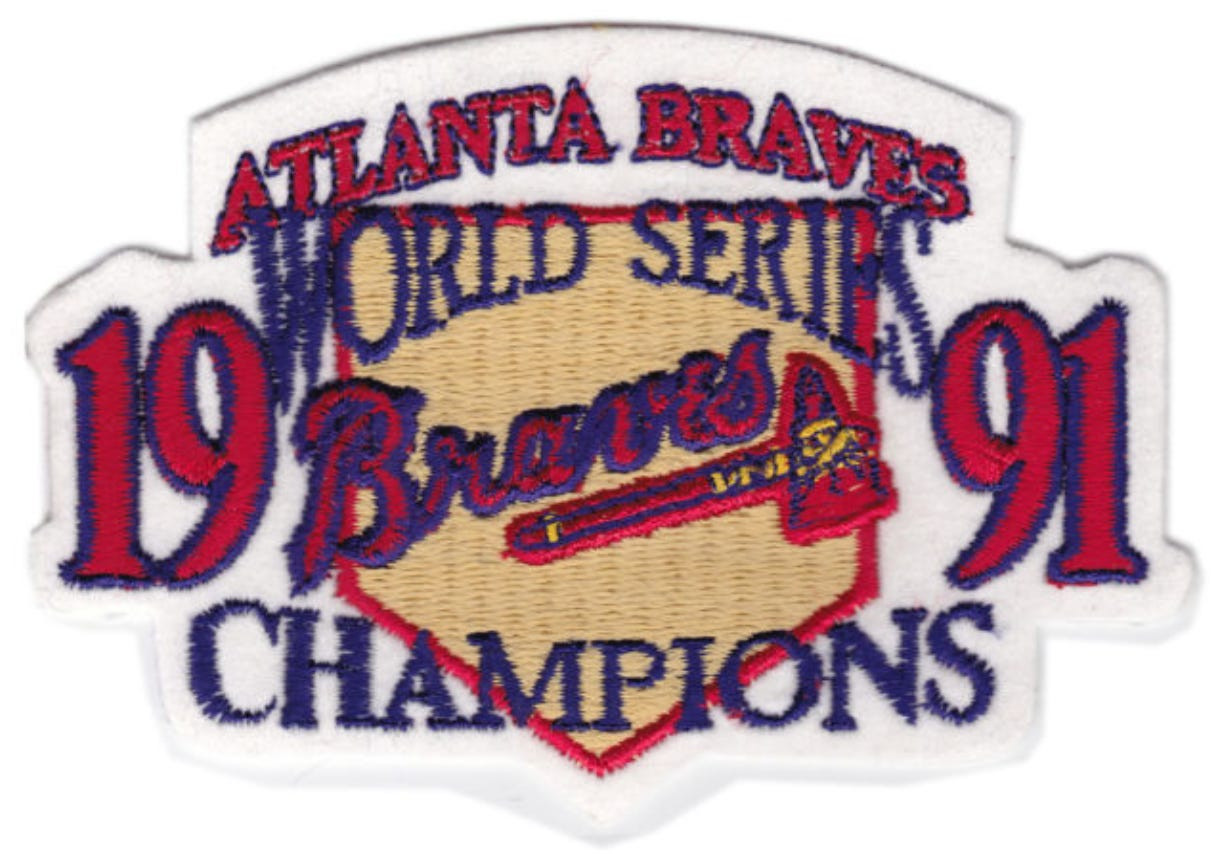Dolly Parton is more than just a country music icon; she’s a cultural institution. Her voice, songwriting, and persona have resonated with generations. Among her vast catalog of hits, two songs stand out as masterpieces of storytelling and emotion: “I Will Always Love You” and “Jolene.” These tracks are not just songs; they are narratives woven with threads of love, heartbreak, and human experience. The story behind these Dolly Parton songs, particularly the often-repeated tale of them being written on the same day, adds to their mystique and highlights Parton’s incredible songwriting talent.
 Dolly Parton performs at 1973 dedication of Cordell Hull Dam
Dolly Parton performs at 1973 dedication of Cordell Hull Dam
Dolly Parton: From Humble Beginnings to Musical Stardom
Born into a large family in rural Tennessee, Dolly Parton’s upbringing in a one-room cabin was a far cry from the glitz and glamour she would later embody. This background, however, became the fertile ground for her songwriting. Her early experiences, combined with her natural musical ability, propelled her into the world of country music. A pivotal moment in her early career was joining “The Porter Wagoner Show” in the late 1960s. Porter Wagoner, a well-established country star, provided Parton with a platform to showcase her talent. She quickly became a fan favorite, captivating audiences with her charm, wit, and, most importantly, her songwriting prowess. While the partnership was initially beneficial, Parton’s burgeoning solo career ambitions soon led her to seek independence.
“I Will Always Love You”: A Farewell Anthem of Timeless Love
As Parton’s popularity grew, so did her desire for creative and professional autonomy. By the early 1970s, she felt the need to step out from Wagoner’s shadow and pursue her own path. It was during this period of transition and emotional complexity that “I Will Always Love You” was born. Contrary to some interpretations, the song wasn’t initially conceived as a romantic ballad in the traditional sense. Instead, it was Parton’s heartfelt farewell to Porter Wagoner, a poignant expression of gratitude and love as she prepared to leave his show and their professional partnership.
The lyrics, imbued with sincerity and tenderness, transcend the specifics of Parton’s situation. They speak to the universal experience of love and letting go, of cherishing memories while moving forward. The raw emotion in the song resonated deeply with listeners. Even Elvis Presley was captivated by “I Will Always Love You,” famously wanting to record it for Priscilla after their divorce. However, Colonel Tom Parker’s demand for half of the publishing rights led Parton to refuse, a decision that proved to be incredibly astute.
Years later, Whitney Houston’s iconic rendition of “I Will Always Love You” for the movie “The Bodyguard” catapulted the song to global superstardom. Houston’s powerful vocals transformed the country ballad into a soaring pop anthem, introducing it to a new generation and solidifying its place in music history. While Houston’s version is distinct, Parton has always acknowledged and celebrated it, recognizing how it broadened the song’s reach and brought her significant financial success. Yet, at its heart, “I Will Always Love You” remains Dolly Parton’s song, a testament to her songwriting genius and ability to capture profound human emotions.
“Jolene”: A Haunting Plea of Vulnerability and Fear
While “I Will Always Love You” explores the bittersweet emotions of farewell and enduring affection, “Jolene” delves into the unsettling territory of jealousy and insecurity. The inspiration for “Jolene” came from a real-life encounter at a bank, where Parton observed her husband, Carl Dean, paying perhaps a little too much attention to a strikingly beautiful red-haired bank teller named Jolene. Though Parton and Dean’s marriage has stood the test of time, the encounter sparked a song that explores the vulnerability and fear that jealousy can evoke.
Musically, “Jolene” is as captivating as it is lyrically. The song’s signature creeping riff, played on a nylon-string classical guitar, creates an atmosphere of both allure and unease, a departure from the typical steel-string sound of country music at the time. The chorus, with its repeated, pleading invocation of “Jolene,” is instantly memorable and emotionally charged. It’s a direct and desperate address to the woman who poses a perceived threat, a unique approach in songwriting.
“Jolene” has been covered countless times across various genres, a testament to its enduring appeal and structural brilliance. From Miley Cyrus’s resonant rendition to The White Stripes’ raw garage rock take, and even a screamo metal version, “Jolene” proves its adaptability and the strength of its core melody and narrative. Each cover highlights different facets of the song, underscoring its timeless quality and Parton’s songwriting versatility.
 This is issue #91 of Flashlight & A Biscuit. Check out all the past issues right here
This is issue #91 of Flashlight & A Biscuit. Check out all the past issues right here
The Same-Day Songwriting Anecdote: Fact or Folklore?
The anecdote of Dolly Parton writing both “Jolene” and “I Will Always Love You” on the same day has become a popular piece of Dolly Parton lore, often cited as evidence of her exceptional productivity and songwriting genius. This story gained traction in 2017 when Parton mentioned finding an old cassette tape containing early versions of both songs, suggesting they were created around the same time.
While the exact timeline might be slightly embellished in popular retelling, the essence of the story rings true. Dolly Parton is known for her prolific songwriting. Stories abound of her composing songs on napkins, in hotel rooms, and seemingly effortlessly drawing inspiration from everyday life. The early 1970s were indeed a highly creative period for her, a time when she was honing her craft and producing a wealth of material.
Whether penned on the very same day or within a short span, the close proximity in the creation of “Jolene” and “I Will Always Love You” speaks to Parton’s extraordinary talent and work ethic. As she herself stated in a 2020 interview, even if not precisely the same day, it was “during that same week or that period of time.” The key takeaway is not necessarily the single-day feat, but rather the consistent flow of creativity and dedication to her craft that allowed such brilliance to emerge.
The Enduring Legacy of Dolly Parton’s Songwriting
Ultimately, the enduring appeal of “I Will Always Love You” and “Jolene” lies in their emotional honesty, relatable themes, and masterful craftsmanship. They are more than just catchy tunes; they are windows into the human heart, exploring complex emotions with vulnerability and grace. Dolly Parton’s songwriting transcends genre and time, connecting with listeners on a deeply personal level. Her songs have become soundtracks to countless lives, accompanying moments of love, loss, joy, and reflection.
Dolly Parton’s approach to songwriting serves as an inspiring example. She didn’t get bogged down in overthinking or striving for perfection. Instead, she embraced the creative process, allowing her experiences and emotions to flow into her music. Her story encourages aspiring songwriters and creatives to prioritize action over analysis, to create consistently, and to trust that brilliance will emerge from dedication and passion. Dolly Parton’s songs, especially “I Will Always Love You” and “Jolene,” stand as timeless testaments to the power of authentic storytelling and the enduring magic of a truly gifted songwriter.

